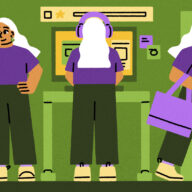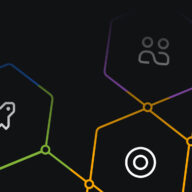What Netflix, Uber, and Airbnb teach us about hiring for experience
In this era of digital disruption, curiosity and initiative matter more than deep expertise.
Once upon a time, “20 years experience” was a good proxy for judging a person’s capabilities. At that time, the business world was quite predictable. Companies who made it into the Fortune 500 tended to stay there for about 30 years. The job you were doing in year 20 closely resembled the job you did in year one.
Today, appearances on the Fortune 500 list are much shorter – less than 20 years. Disruptive companies like Netflix, Airbnb, and Uber prove that the status quo is short-lived no matter what industry you’re in. And in today’s hiring environment, where remote-friendly technologies let us work anywhere anytime, scrappy start-ups can (and will) poach your top talent.
These factors have massive implications for any company looking to scale up.
Tenure matters less than you think
In a recent catch-up with Patty McCord, former Chief Talent Officer at Netflix, we debated the relative merits of hiring for initiative vs. tenure. The punch line? Initiative beats tenure almost every time.
With everything from programming languages to marketing best practices evolving so rapidly, there’s little point in hiring someone with 20 years experience in their role. Those first five (even ten?) years of experience are likely irrelevant today.
Now, before you brand me as agist, understand that 20 years in the working world is a Good Thing™ so long as that 20 years demonstrates an ability to anticipate and adapt. I once interviewed a candidate who explained: “I’ve got 18 years of work experience, but each year has been different.” Amazing.
A bit of restlessness and a willingness to start from scratch matter in today’s environment. The best thing about hiring fresh college graduates is that they don’t know what they don’t know, and will plow through barriers that others don’t even think to question.
It’s not what you know. It’s how quickly you can learn.Hire fully-formed adults
Seems obvious, doesn’t it? We’ve wrongly learned to associate adulthood with age, but it’s more about being resilient, humble, and a life-long learner. (Look around you. I bet you work with plenty of 20-somethings who are fully-formed adults, and a 40-year old who isn’t.)
When you hire adults and embrace cognitive diversity, you start to uncover smarter ways to serve your market. Empower them with the authority to make decisions and take calculated risks. They’re the ones who will demonstrate initiative and find innovative solutions to problems.
Org charts are broken
The traditional notion of “climbing the ladder” by accumulating your years of service is obsolete. Today, career development is more about lateral movement and accumulation of different skills. The ability to adapt quickly and thrive is more important than deep expertise in most cases.
Yet org charts are still vertical and hierarchical at most companies. If you look at highly innovative companies like Netflix and Airbnb, however, they operate on much flatter structures. Their org charts are customer-focused instead of functionally-focused. They understand that networks of teams coming together to serve the customer produce amazing results.
Don’t discount candidates that have worked in six different roles for three years each. The initiative demonstrated by all that lateral movement – and the breadth of experience that comes as a result – will serve your company well.
. . .
This article originally appeared on Inc.com.










































